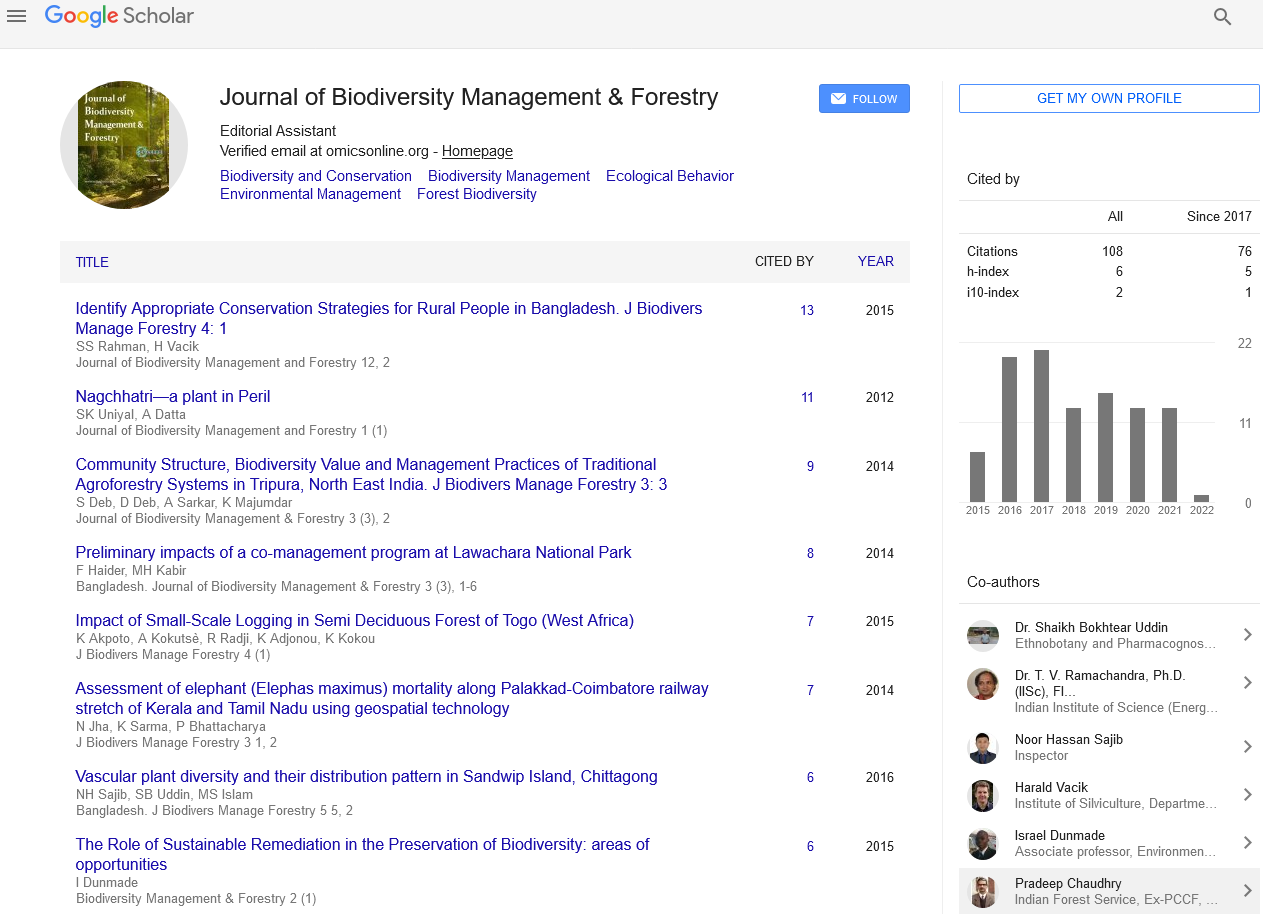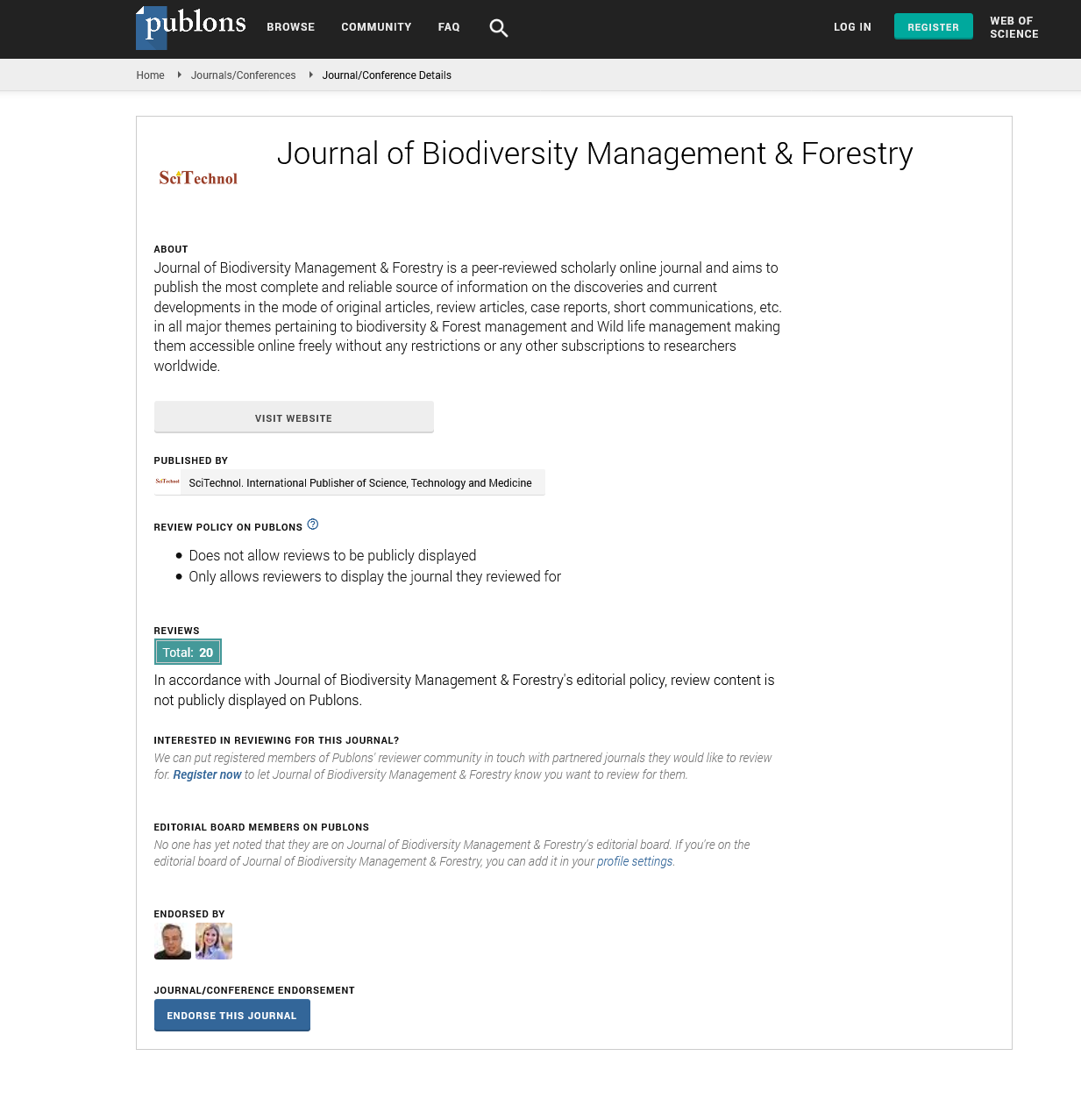Short Communication, J Biodivers Manage Forestry Vol: 10 Issue: 11
Protect of Dormant Buds in Winter High Temperature from Frost Damage
The Daxingâ??an mountain is an important natural geographic barrier, in north east inner Mongolia and northwest Heilongjiang province, it is the middle part between semiarid inland area on northwest side and the Pacific Ocean. It is also known to be the transition zone semi-arid region to semi humid [1]. South east side of this area is blocked by mountains so; the summer monsoon cannot enter in this area. The eastern side of this region is humid and western side is more dried. Summer climate is explained by periodic invasions of warm and humid air from low elevation oceans, while winter season is invaded cold air masses on high latitudes. This study was done on high latitude in Daxingâ??an mountains. The annual mean vapor pressure (59.4, 59.8, 64.1) respectively at Mg, Kyh, and Nm sites and annual mean diurnal temperature (16,15.6, 12.7) respectively at 3-sites. Coldest month is January and maximum hotness in Month of July. Annual rain falls accounts for 68% in June to August. Relative humidity high in growing season. Spring and early summer face severe drought conditions frequently. This area also has an average high burning rate in china.
Abstract
The Daxing’an mountain is an important natural geographic barrier, in north east inner Mongolia and northwest Heilongjiang province, it is the middle part between semiarid inland area on northwest side and the Pacific Ocean. It is also known to be the transition zone semi-arid region to semi humid [1]. South east side of this area is blocked by mountains so; the summer monsoon cannot enter in this area. The eastern side of this region is humid and western side is more dried. Summer climate is explained by periodic invasions of warm and humid air from low elevation oceans, while winter season is invaded cold air masses on high latitudes. This study was done on high latitude in Daxing’an mountains. The annual mean vapor pressure (59.4, 59.8, 64.1) respectively at Mg, Kyh, and Nm sites and annual mean diurnal temperature (16,15.6, 12.7) respectively at 3-sites. Coldest month is January and maximum hotness in Month of July. Annual rain falls accounts for 68% in June to August. Relative humidity high in growing season. Spring and early summer face severe drought conditions frequently. This area also has an average high burning rate in china.
 Spanish
Spanish  Chinese
Chinese  Russian
Russian  German
German  French
French  Japanese
Japanese  Portuguese
Portuguese  Hindi
Hindi 
